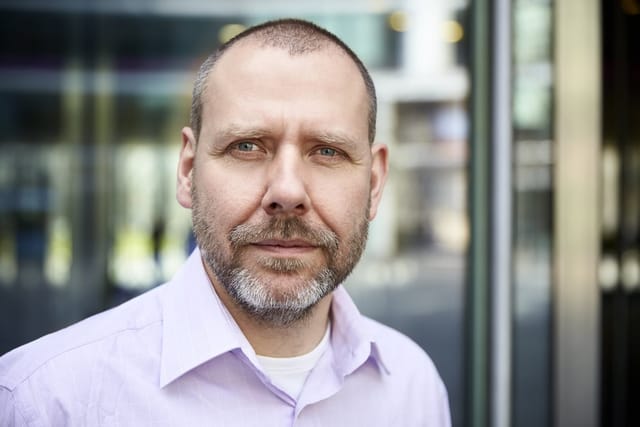The internet is full of armchair psychologists who love to diagnose people they’ve never met with conditions they know nothing about. However, slapping the “narcissist” label on difficult people has serious consequences. Here’s why we need to be more cautious with this term.
1. It minimizes the seriousness of Narcissistic Personality Disorder (NPD).

NPD is a real clinical diagnosis with specific criteria, Mayo Clinic explains. Tossing the term around for anyone vaguely self-absorbed really diminishes the struggle of those with the actual disorder. It perpetuates the misconception that narcissism is simply a synonym for being a jerk.
You may also like: 15 Clever Phrases That Instantly Humble an Arrogant Person
2. It often stems from anger and hurt, not objective diagnosis.

After a bad breakup or conflict with a difficult person, it’s tempting to seek a label to justify our anger. But genuine NPD is far more complex than just being selfish or rude. By self-diagnosing, we miss the chance to understand the true roots of the harmful behavior.
Don’t miss out – follow Bolde for exclusive content daily
3. It shuts down the potential for more nuanced understanding.

Labeling someone a narcissist creates an all-or-nothing view. We stop seeing them as a person with a range of both positive and negative qualities and behaviors. This mindset limits the possibility of finding common ground, resolution, or even recognizing our own role in a dysfunctional dynamic. While the person may actually have narcissistic tendencies, it’s worth exploring this in closer detail before writing them off completely.
You may also like: The Top 10 Reasons Men Break Up With Women, As Told By A Guy
4. It can lead to oversimplifying complex issues.

Every bad relationship isn’t caused by a narcissist. Sometimes, it’s incompatibility, poor communication, or unaddressed mental health issues on both sides. Reducing it to “narcissist vs. victim” robs us of the chance to learn how we may avoid similar unhealthy patterns in the future.
Don’t miss out – follow Bolde for exclusive content daily
5. It perpetuates the stigma surrounding mental health.

Mental illnesses are already heavily stigmatized. When we casually demonize a personality disorder, often based on limited information, we reinforce the misconception that people with these diagnoses are irredeemable monsters, rather than human beings struggling with a complex condition.
You may also like: These 16 Types of People Are Red Flags In Disguise
6. It can be weaponized and used to dismiss valid criticism.

Have a boss who calls you out for underperforming? A friend who confronts you about being flaky? Labeling them a narcissist becomes a way to invalidate their feedback. This prevents personal growth, as we miss out on genuine opportunities to address our own shortcomings.
Don’t miss out – follow Bolde for exclusive content daily
7. It creates a victim mentality rather than empowerment.

While people who have been abused by genuine narcissists need support, focusing solely on the label can trap us in helplessness. It’s vital to move beyond simply labeling, and towards strategies of self-protection, setting boundaries, and finding ways to heal from the hurt.
You may also like: 20 Ways A Narcissist Acts When They Can’t Control You
8. It distracts us from addressing the actual harmful behaviors.

Is someone manipulative, gaslighting you, or rageful? Those are the issues to focus on, regardless of diagnosis. Fixating on the label of “narcissist” only can divert attention from the specific actions causing harm, and prevent us from finding practical solutions to protect ourselves.
Don’t miss out – follow Bolde for exclusive content daily
9. It contributes to a glut of misinformation.

The internet is full of pop psychology articles with misleading descriptions of narcissism, Psychology Today notes. This fuels over-diagnosis. For those truly struggling with someone with NPD, it can be hard to find credible resources amidst all the noise of self-proclaimed experts.
You may also like: 30 Things Men Do When They’re Having A Midlife Crisis
10. It minimizes the experiences of other mental health conditions.

Borderline PD, Histrionic PD, even some forms of anxiety can present with behaviors that get mislabeled as narcissism. This minimizes the unique struggles of those with other diagnoses, and leads to choosing the wrong treatment approaches if help is sought.
Don’t miss out – follow Bolde for exclusive content daily
11. It can lead to self-victimization and impede healing.

Constantly defining yourself as a “victim of a narcissist” can become a self-fulfilling prophecy. It makes the abuse your entire identity, hindering your ability to move on and build healthier relationships. True healing begins when we reclaim agency and focus on rebuilding our own lives.
You may also like: 15 Adult Traits of People Who Were Bullied As Kids
12. It may lead to false accusations and create a destructive ‘witch hunt’ mentality.

When “narcissist” becomes the buzzword, people may start seeing them around every corner. This can escalate into false accusations, damaging reputations, and fostering an unhealthy obsession with dissecting the behavior of others rather than focusing on our own growth.
Don’t miss out – follow Bolde for exclusive content daily
13. It can become a self-fulfilling prophecy in the labeled person.

If someone is constantly told they’re a narcissist, they may internalize it. This can lead either to a defensive denial, making them resistant to change, or they may lean into the role, using the label as an excuse for bad behavior rather than motivation for self-improvement.
You may also like: People Who Lack Self-Awareness Frequently Say These 14 Things
14. It can discourage people with NPD traits from seeking help.

Mental health care already carries stigma. If they’ve been labeled a ‘narcissist’ with an implication it’s untreatable, those who genuinely struggle may feel hopeless, believing therapy won’t work for them. This reinforces the harmful misconception that people with NPD can’t change.
Don’t miss out – follow Bolde for exclusive content daily
15. It potentially creates a legal slippery slope.

Should laypeople diagnosing loved ones with a mental disorder become admissible in custody battles, divorce proceedings, etc.? This opens a Pandora’s box, as untrained individuals would essentially be given the power to determine someone’s mental health status with potentially far-reaching consequences.
You may also like: People Who Rarely Exhibit Empathy Usually Have These 16 Traits
16. It ultimately lacks compassion.

While those struggling with NPD can inflict serious pain, the disorder often stems from deep-seated insecurities. Demonizing them doesn’t help anyone. It’s vital to find the balance of setting firm boundaries to protect ourselves while acknowledging that hurt people often hurt people.
Enjoy this piece? Give it a like and follow Bolde on MSN for more!


